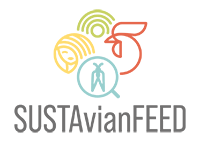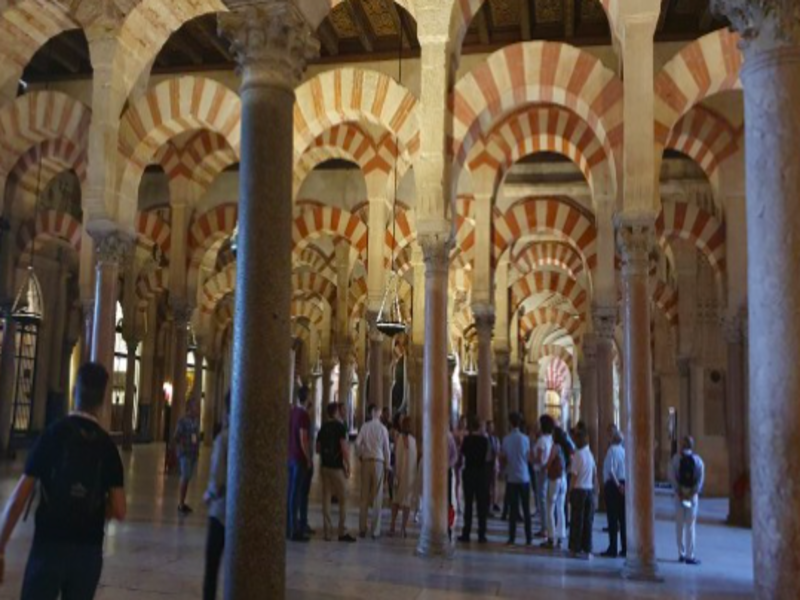The 7th Mediterranean Poultry Summit of the World’s Poultry Science Association was held between June 8 and 10, 2022, in Cordoba, Spain.
In this unique setting, an interesting and high-level scientific program was prepared with the best invited speakers all around the world, but mainly from the Mediterranean area. Industry, producers, research, university and students were present in the Summit and the place of the students concerned in poultry was principal, with activities prepared for them.
The EGE University, partner of our SUSTAvianFEED project, was one of the guests at the event. With the collaboration of MURCIA, it presented an oral talk entitled “Alternative sustainable broiler feed formulations with local ingredients and black soldier fly larvae: what do stakeholders think in Turkey” (Abstract ID is: 130252), prepared by Karahan Uysal, Türkekul, Cömert Acar, Perez Guaba, Özkan, Martinez Miro, Montalban Perez, and Yalcin. The purpose of the study was to evaluate whether a sustainable diet, involving partial replacement of soybean with local feed ingredients, by-products, and Hermetia illucens (black soldier fly) larvae would be acceptable to stakeholders in Turkey. This paper was prepared as a summary of online semi-structured interviews with animal scientists, organic and conventional broiler farmers, feed manufacturers, and representatives of the relating NGOs, in September 2021 and February 2022. The paper concluded that, first of all, the acceptance of alternative diets would depend on the price and availability of alternative ingredients and bird’s performance fed alternative diets and, in addition, it attempts to increase the sustainability of broiler rations should not be reflected in meat prices by more than 10-20%. On the other hand, it was determined that broiler producers currently use alternative ingredients at a low level.
The second paper presented by the SUSTAvianFEED UMU (University of Murcia, Spain) team in collaboration with UNITO (University of Turin, Spain) was a poster entitled “Environmental impact of laying hen feeds using low impact alternative ingredients and insect inclusion” (Abstract ID is 130187). This paper was prepared by Rosique, Montalban, Madrid, Hernandez, Ros, Carlos Segura, Antonio Cartes, Torres, Schiavone, and Martinez-Miro. Since the feeding of laying hens accounts for more than 80% of the environmental impact of its production, this paper aimed to assess the environmental impact of incorporating peas, rapeseed meal, baking flour, and Hermetia illucens into the laying hen diets as an alternative to reducing the soybean meal in the control diet. The impact of alternative feed ingredients was evaluated using the Agri-Footprint database, assuming loads of production and transport to the feed mill. To estimate the impact of the larvae, the inputs and outputs applied for their production and transport were analyzed. The paper concludes that an alternative diet can reduce the estimation of the environmental impact of the control diet, however, in-vivo conditions should be studied to understand its effect on birds’ performance. This poster presentation was awarded as one of the best papers of young researchers by the Scientific Committee of the Summit.
Both presentations attracted the attention of the audience and can be accessed via the congress website








Leave a Reply
You must be logged in to post a comment.